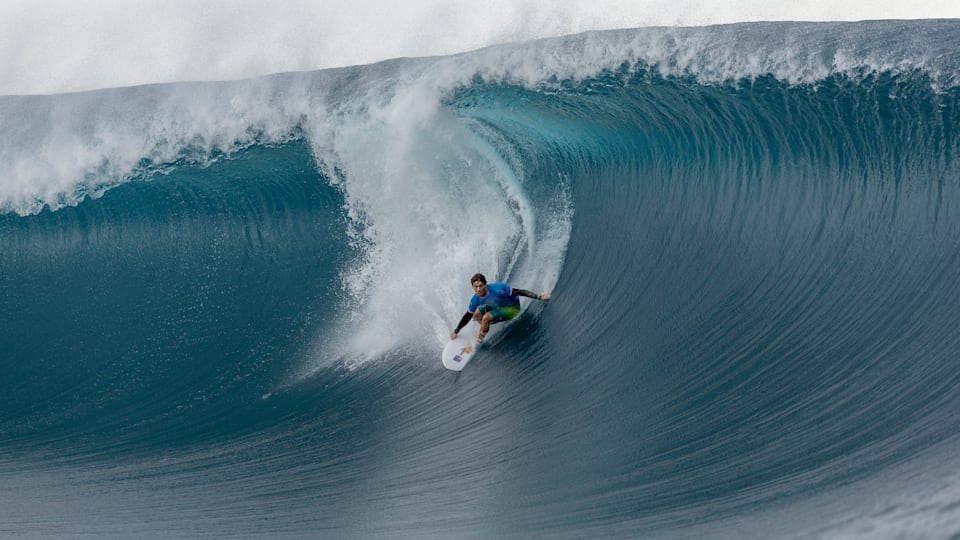Paris 2024 surfing: What’s next for Olympic surfing at Teahupo’o? A scheduling update

Wednesday 31 July marks day four of the 10-day Olympic surfing window at the Tahitian surfing venue of Teahupo’o in French Polynesia. The competition has been on hold since unfavourable conditions blew in on the afternoon of Monday 29 July, delaying the women’s surfing round 3 competition.
The competition has seen a variety of weather conditions, most notably massive waves on Monday morning during men’s round 3 — an event that will go down in surfing competition history.
Olympics.com spoke with International Surfing Association (ISA) president Fernando Aguerre at Teahupo’o, 9,000 miles from the Olympic Games Paris 2024 host city of Paris, about the current conditions and the scheduling plans.
After announcing a further hold Wednesday morning, Aguerre explained that this is “the ABC of any surfing competition — you're on standby.” He said that despite the delays, “there's an excitement you can feel when you walk around here. Even the surfers who are out of the competition, they're hanging out with the ones who are in the competition.
“Everyone can relax and recover, particularly after that intense Monday. There were many wipeouts; it’s not the same to wipe out anywhere in the world as to wipe out here.
“When you see a surfer going over the lip and falling on the reef, we’re happy we haven’t had any major accidents. And want to continue protecting the athletes — that’s priority one, and then it’s the competition.”
Once the competition is called back "on," it will resume with women's round 3, followed by quarter-finals, semi-finals and the bronze- and gold-medal matches.
The 10-day surf window runs through 5 August— see the full schedule here.
On the art of surf forecasting at Teahupo’o
Teahupo’o is one of the most complex waves for surf forecasting. “In this part of the world, the weather and the wave patterns change very quickly,” said Aguerre. “It's like being in the open seas. This is part of the excitement of surfing, that it’s not science. It’s a mix of science and art; it’s forecasting, and the people helping us are the people who know this very, very well.”
The competition has been delayed because, says Aguirre, “the conditions aren’t right. The huge wind that came, there was a swell and then wind, so the wind chops and breaks the swell, and it takes hours and sometimes a day or two for the swell to become steady and tidy, and that’s what we want.
“It’s like fishing — you never know when the fish is going to bite. Anything ocean-related is like this.”
Despite the challenges, Aguirre says, "it's been an amazing competition so far. Having the surf competition in Tahiti is really a huge undertaking for all parties. But at the end of the day, I think we've done the right thing."